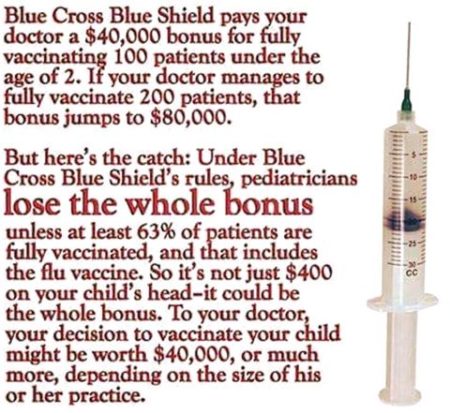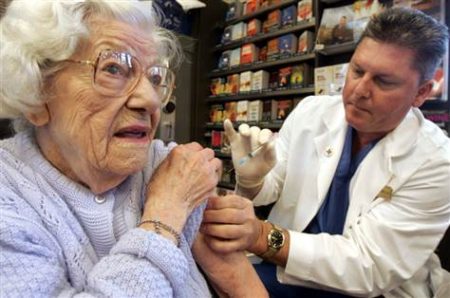The following debate originally took place on my Facebook wall, upon my post, “But… Muh Herd Immunity!“…

Merck: Murking the Weak for the “Greater Good” of Humanity
Rayn: Merck Has Some Explaining To Do Over Its MMR Vaccine Claims:
http://www.huffingtonpost.ca/lawrence-solomon/merck-whistleblowers_b_5881914.html
But… but… muh herd immunity! :_(
*sniffle*
Stacie T.: http://www.snopes.com/medical/disease/cdcwhistleblower.asp
Stacie T.: I’ll take my chances. Death of children from these diseases had hit too close to home for me.
Rayn: Actually, there are three court cases mentioned in the article, and they were placed in order of occurrence and importance, for a reason, with the third one you choose to focus upon being the least relevant, the least substantiated, the least current, and the most controversial. It was likely reported only in the interest of noting the fact that Merck is being accused on many fronts. I was really only interested in sharing the latest “news” (the latest case, that is) but didn’t feel like navigating through the mainstream media monopoly’s efforts to trivialize it, as expected, since I’m using my phone to read and post, instead of my laptop, like I’ve done so often in past. Since I’m currently traveling, I’m not exactly in an ideal position to do the full-time-job’s worth of mental leg-work that so many others else avoid, like I usual do, and had hoped others would be able to do the filtering for themselves, occasionally. I stand corrected…
From the article, “The first court case, United States v. Merck & Co., stems from claims by two former Merck scientists that Merck ‘fraudulently misled the government and omitted, concealed, and adulterated material information regarding the efficacy of its mumps vaccine in violation of the FCA [False Claims Act].’
According to the whistleblowers’ court documents, Merck’s misconduct was far-ranging: It ‘failed to disclose that its mumps vaccine was not as effective as Merck represented, (ii) used improper testing techniques, (iii) manipulated testing methodology, (iv) abandoned undesirable test results, (v) falsified test data, (vi) failed to adequately investigate and report the diminished efficacy of its mumps vaccine, (vii) falsely verified that each manufacturing lot of mumps vaccine would be as effective as identified in the labeling, (viii) falsely certified the accuracy of applications filed with the FDA, (ix) falsely certified compliance with the terms of the CDC purchase contract, (x) engaged in the fraud and concealment describe herein for the purpose of illegally monopolizing the U.S. market for mumps vaccine, (xi) mislabeled, misbranded, and falsely certified its mumps vaccine, and (xii) engaged in the other acts described herein to conceal the diminished efficacy of the vaccine the government was purchasing.’
These fraudulent activities, say the whistleblowers, were designed to produce test results that would meet the FDA’s requirement that the mumps vaccine was 95 per cent effective. To the whistleblowers’ delight, the judge dismissed Merck’s objections to the case proceeding, finding the whistleblowers had plausible grounds on all of the claims lodged against Merck.
If the whistleblowers win, it would represent more than a moral victory (they repeatedly tried to stop Merck while still in its employ). Under the False Claims Act, the whistleblowers would receive a share — likely 25 per cent to 30 per cent — of the amount the government recovers. Previous settlements involving extensive fraud by pharmaceutical companies under the False Claims Act have run into the hundreds of millions of dollars, and in some cases such as against GlaxoSmithKline and Pfizer, into the billions.
The second court case, Chatom Primary Care v. Merck & Co. relies on the same whistleblower evidence. This class action suit claims damages because Merck had fraudulently monopolized the mumps market. Doctors and medical practices in the suit would be able to obtain compensation for having been sold an overpriced monopolized product, and a defective one to boot, in that the mumps vaccine wasn’t effective (indeed, the suit alleged that Merck expected outbreaks to occur and, as predicted, they did — mumps epidemics occurred in 2006 in a highly vaccinated population and again in 2009-2010).
‘Plaintiffs have argued sufficient facts to sustain a claim for proximate causation, detailing the significant barriers that other companies would face to enter the mumps vaccine market,’ the court ruled.”
Stacie T.: There were other articles I found, but I am on my phone, as well. I posted one to show the ease at which you can find information to contradict the statements in this article. There is always a chance that a batch of medication produced will be faulty. There’s a chance that any product can have a faulty batch. I am not willing to write off all protection for my child based on speculation. There is so much propoganda against vaccines. I go with the research from a trusted toxicologist whom I know personally and her trusted partners. After seeing a close friend’s life ruined by her two year old’s death, I’d rather do what I can and hope for the best. Could it still happen? Yes. No immunity, including natural immunity, is 100%. (Click Here to Continue Reading This Post) →











